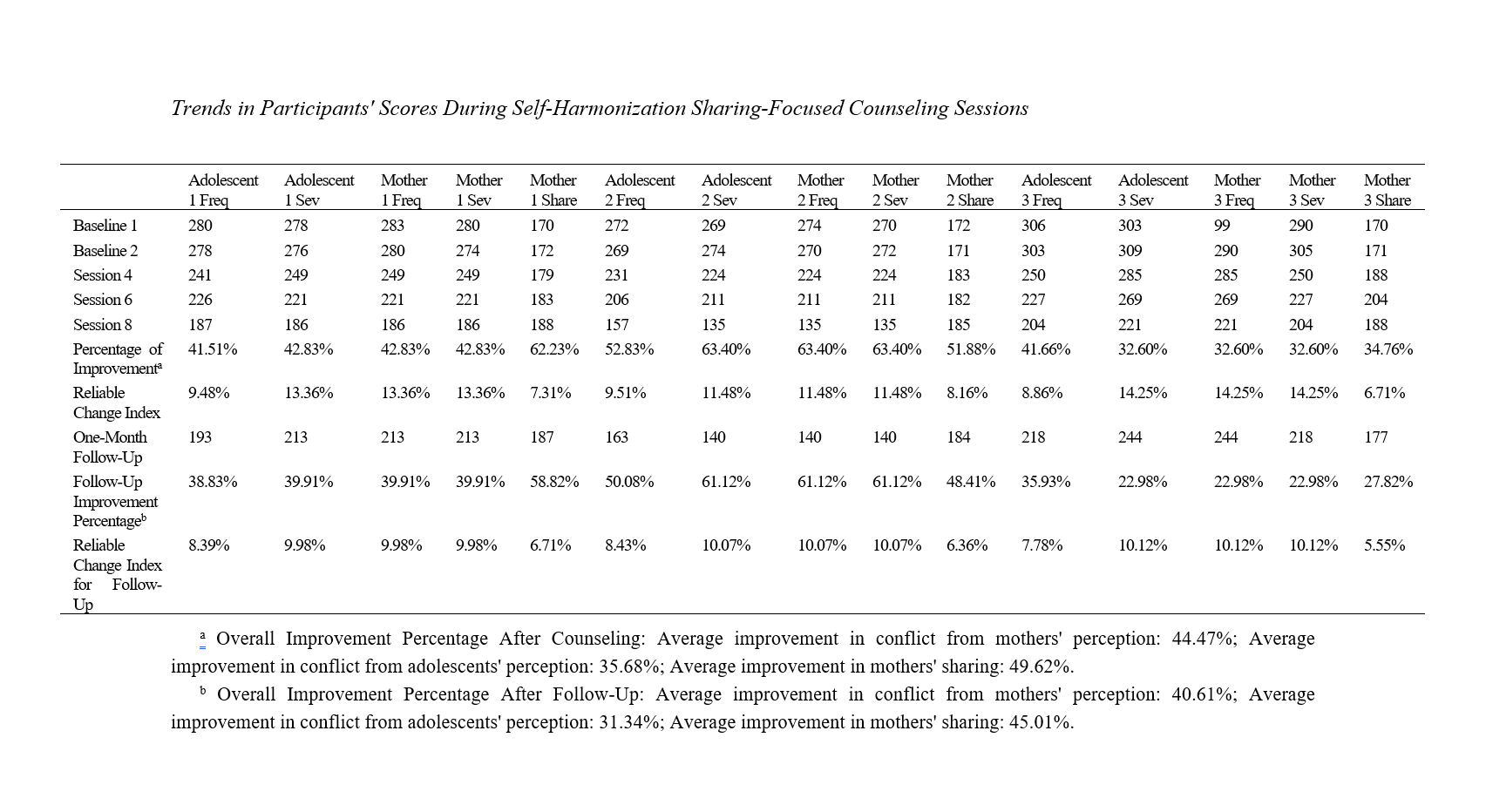Effectiveness of the Self-Harmonization Counseling Model Based on the Sharing Approach in Reducing Mother-Adolescent Conflicts: A Case Study
Keywords:
Mother-adolescent conflicts, self-harmonization, sharing approachAbstract
Objective: This study aims to evaluate the effectiveness of the self-harmonization counseling model based on the sharing approach in reducing mother-adolescent conflicts.
Methods and Materials: The research method was quasi-experimental, employing case studies. For this purpose, three mother-adolescent pairs, characterized by non-sharing, high-conflict mothers, were selected in 2022 from Tehran using purposive sampling based on entry criteria. Over the course of eight 60-minute sessions, they underwent counseling using a sharing-focused self-harmonization model. Mothers and adolescents completed the Parent-Adolescent Conflict Questionnaire by Asadi Younesi et al. (2011) at baseline and intervention stages, while only mothers responded to the Sharing Lifestyle Questionnaire by Esmaeili et al. (2022) during these phases. Additionally, before treatment, both mothers and adolescents filled out the General Health Questionnaire GHQ-28 (Goldberg & Hillier, 1979). Data were analyzed using visual plotting, reliable change index, and percentage of improvement formula.
Findings: The results indicated that the overall percentage of improvement in conflict post-intervention from the perspectives of parents and adolescents was 58.11% and 42.17% for the first participant, 47.01% and 37.13% for the second participant, and 28.29% and 27.75% for the third participant, respectively. Also, the increase in sharing by mothers was 62.23%, 51.88%, and 34.76% for the first, second, and third participants, respectively. These values represent successful short-term counseling outcomes.
Conclusion: Therefore, the self-harmonization model based on the sharing approach provides an opportunity for mothers to foster self-harmonization across various dimensions by adopting a sharing attitude and implementing productive strategies, thereby experiencing reduced conflicts with their adolescents. The findings can be utilized by counselors in the fields of family and adolescent.
Downloads

Downloads
Additional Files
Published
Issue
Section
License
Copyright (c) 2024 Fahimeh Shadabmehr (Author); Masoumeh Esmaeily (Corresponding Author); Ebrahim Naimi, Yaser Rezapour Mirsaleh (Author)

This work is licensed under a Creative Commons Attribution-NonCommercial 4.0 International License.








